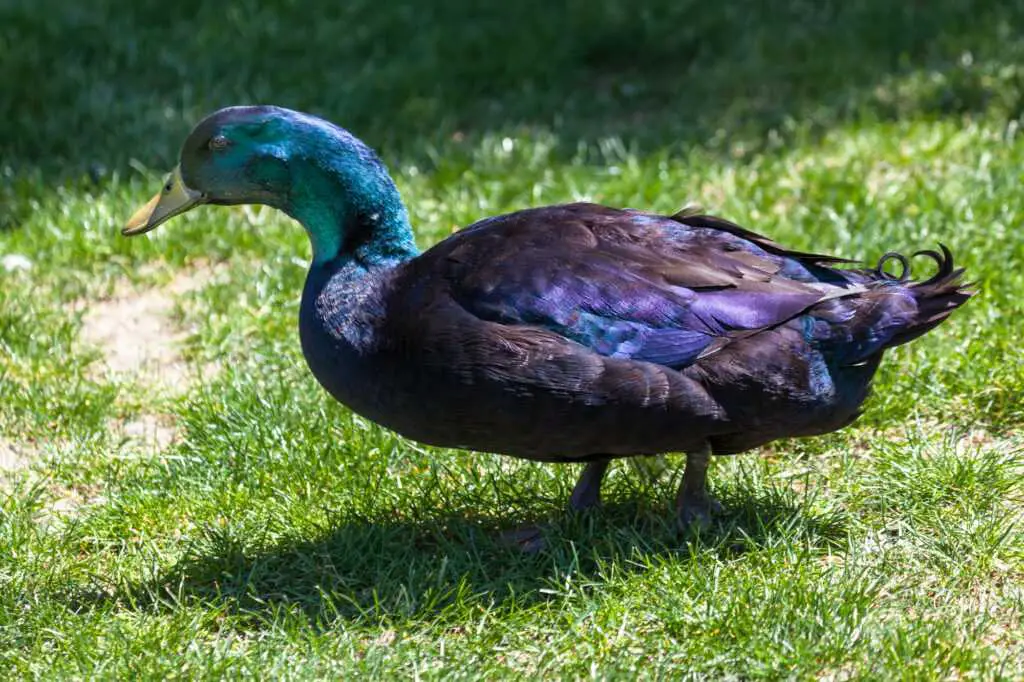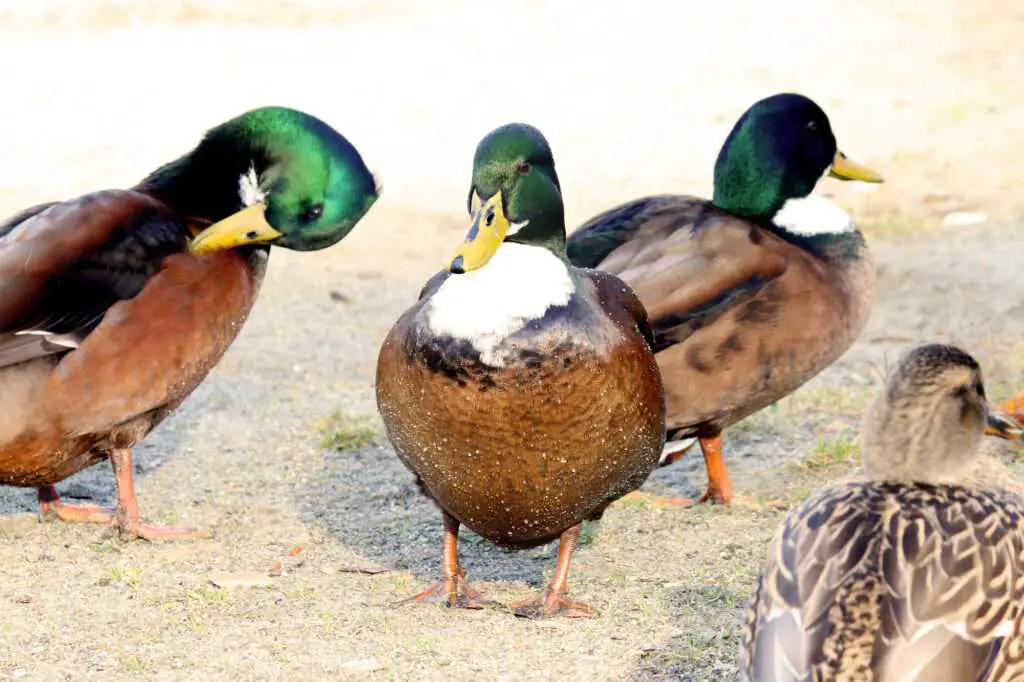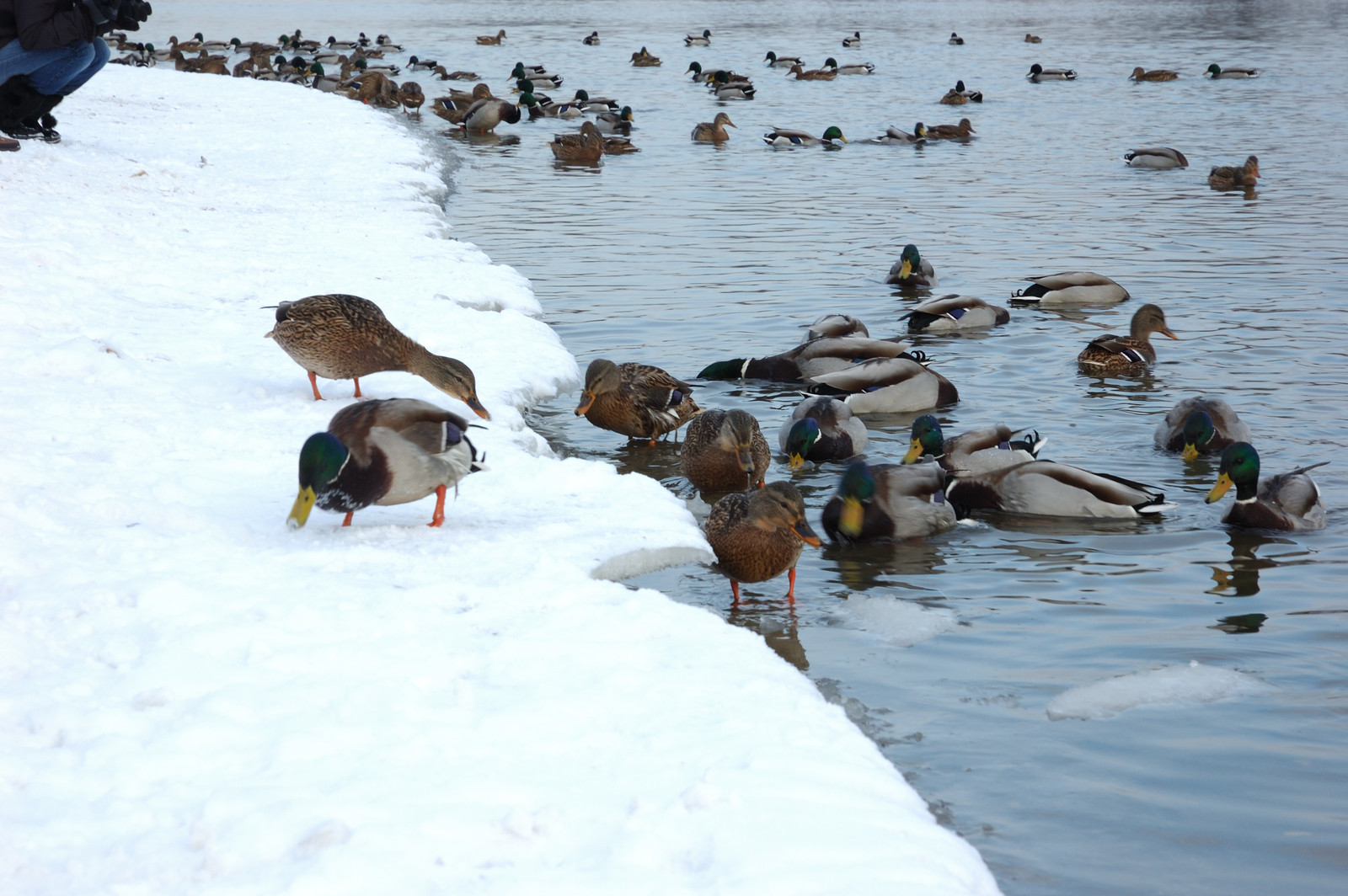One of the big questions anyone has to ask themselves before they get a pet is if they can stand the sound, ducks included. Sure, you may think that you’re ready to feed and shelter a pet and do all the other things that come with raising a duck – but are you ready to deal with an incessant loud quack-quack-quacking every hour of every day?
If that seems like hyperbole, chances are you have never owned a duck before. Ducks can quack up a storm, and they don’t understand the concept of quiet time.
That being said, not all “quackers” are created equal, so which ducks are on the quiet side?
Male Versus Female Ducks
Besides duck breeds, the easiest variable to control to limit the amount of quacking that goes on in your duck pen is whether you have male ducks, female ducks, or a mixture of the two. Naturally, the latter category is the loudest mixture, as males and females will quack at one another for everything from disputes to attempts to mate.
On the flip side, keeping only male ducks can reduce some of that competitiveness for mating. By contrast, many female ducks have louder quacks than their comparatively soft-spoken (soft-quacking?) male duck counterparts. However, if you’re keeping just one or two ducks as pets, the gender shouldn’t matter unless you get ducks which are really loud.
Therefore, with that in mind, let’s take a closer look at some of the quieter duck breeds that you can purchase and raise as pets.
Our 5 Quietest Duck Breeds:
1. Muscovy Ducks
These are far and away the top choice for quiet ducks. They are widely considered to be the quietest of popular domestic duck breeds. Again, this is especially true if you buy male ducks that do not share the loud “quacking” sound of females. Instead, male Muscovy ducks have a softer, raspier sound. On the one hand, that may be a bit disappointing if you really want to hear that cute “quack” for which we all know and love ducks. On the other hand, if you want to cut down on the amount of noise coming from your property, this is certainly an option to consider.

Another reason that Muscovy ducks, and the others on this list, are so good as quiet duck options is the fact that they have a calm temperament. If you’re looking to cut down on noise, the last thing you want are a bunch of Daffy and Donald Ducks quacking away in constant quarrels with the other ducks in your pen. Instead, you want ducks that are nice and docile, and that’s precisely what you’ll get with Muscovy ducks. This breed is used to hanging out in wetlands and urban domestic spaces, so you don’t have to worry as much about them being vocally unhappy if you choose to keep them in the latter.
2. Cayuga Ducks
Why are Daffy and Donald Duck so famously flustered and frustrated, anyway? It might have something to do with the few fights that stick with you quite like a loud quacking quarrel. You may love them on TV, but if quiet ducks are the name of the game, you want to avoid duck breeds that are like Donald and Daffy.

Enter the mild-mannered Cayuga duck. These ducks make the list because they’re among the calmest ducks out there, the anti-Donald and Daffy. They won’t get into fights, which means they won’t quack up a storm as they get agitated. On the contrary, these ducks are very sweet and good-natured.
There is plenty else to recommend these ducks, starting with the fact that they have a lovely dark green coat of feathers and can live between 8 to 12 years on average. Better still, Cayugas are highly self-sufficient ducks, capable of foraging for their own dinner, so if you don’t feel like constantly feeding them or would like to let your ducks free range, this is a good breed to consider.
3. Crested Ducks
These ducks may look funny because of the crested tuft of feathers atop their head, which stick up like a little mohawk (or the hairstyle of Yuri Gurriel of the Houston Astros), but they’re also renowned for their quiet behavior.

This is another example of a low-maintenance duck that doesn’t get into fights and doesn’t quack up a storm in disputes with others. The one counterpoint to that is that, as mentioned above, females can make more noise than males as they try and call for others to assist them. In fairness, these female ducks have a lot to deal with as mothers, and you might imagine how not receiving the assistance they need might make them want to raise their voices a bit. On the other hand, however, if you’re trying to keep your pen quiet, single female ducks or a few male ducks may be better.
4. Swedish Blue Ducks
This is another case of docility breeding calmness which, in turn, makes for a quieter duck pen. Swedish Blues are a fantastic breed that’s as calm and friendly as they are absolutely beautiful. Far from being duck divas, these are the kind of ducks that will just waddle right up to say hello. That may seem like a hilarious image – and it is – but it’s also a testament to just how low maintenance these ducks really are. You don’t have to worry about them voicing their displeasure as long as you keep them relatively happy in an open range setting or standard duck pen.

These ducks are also pretty prodigious egg layers, being capable of laying as many as 150 eggs per year. If you want a duck that will simply give you eggs for days and be friendly without quacking up a storm, these are a good option to consider.
5. Magpie Ducks
Here we have yet another example of personality winning out with the calm and quiet Magpie. These are not the kinds of ducks that commonly cause a fuss. They are very quiet and tend to stick to themselves, though that doesn’t mean they don’t have their playful side as well.
As with Cayugas, Magpies are also good foragers, which means that they are self-sufficient and don’t need constant care from you. One side effect of this is the fact that they can be so busy foraging and getting themselves food that they don’t have the energy to quack up a storm in a coop. Far too often, owners keep their ducks inside for much of the day, and then complain when these ducks who have not had the chance to exercise decide to let off some of that pent up energy in a cascade of quacks.
With Magpies, that’s simply not necessary. All you have to do is let them out and roam free for a while so they can burn off some energy, and they’ll return docile, calm, and quiet.
One thing this list demonstrates is that there is no single answer to duck quacks versus quietness – instead, there are several. Some ducks are naturally quiet. Males tend to be quieter than females. Some ducks have a better temperament. Some forage and burn off excess energy that way.
Still, there are thankfully many options for quiet, less quack-happy ducks.

